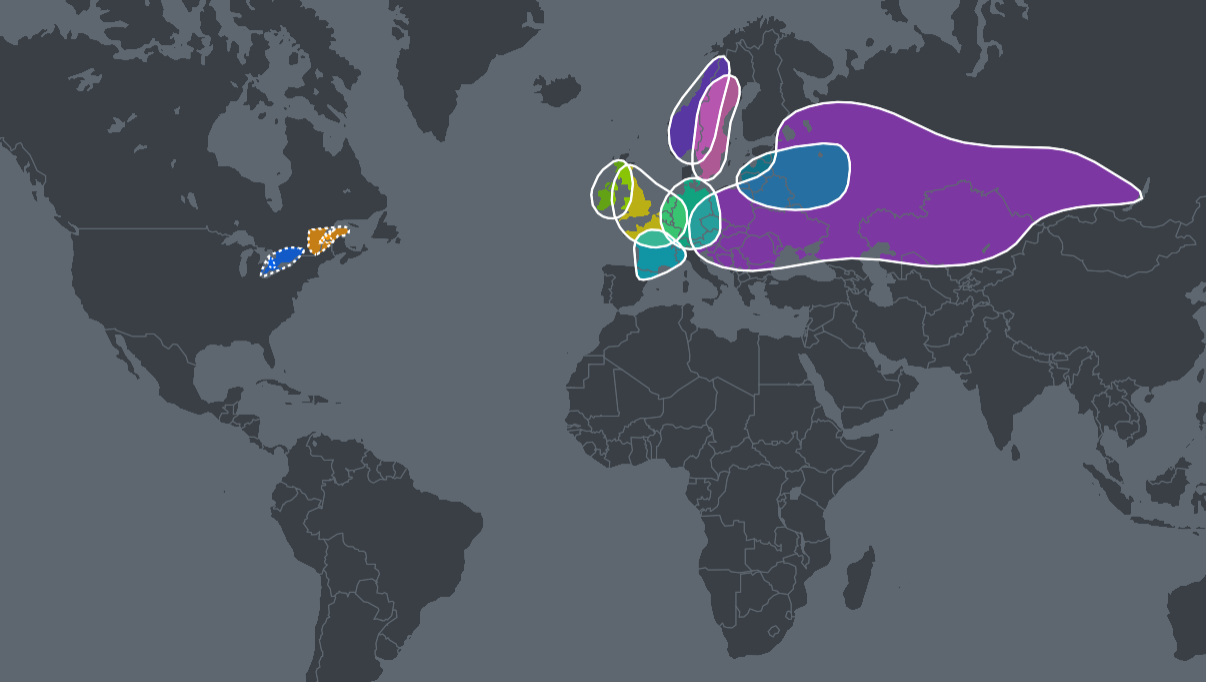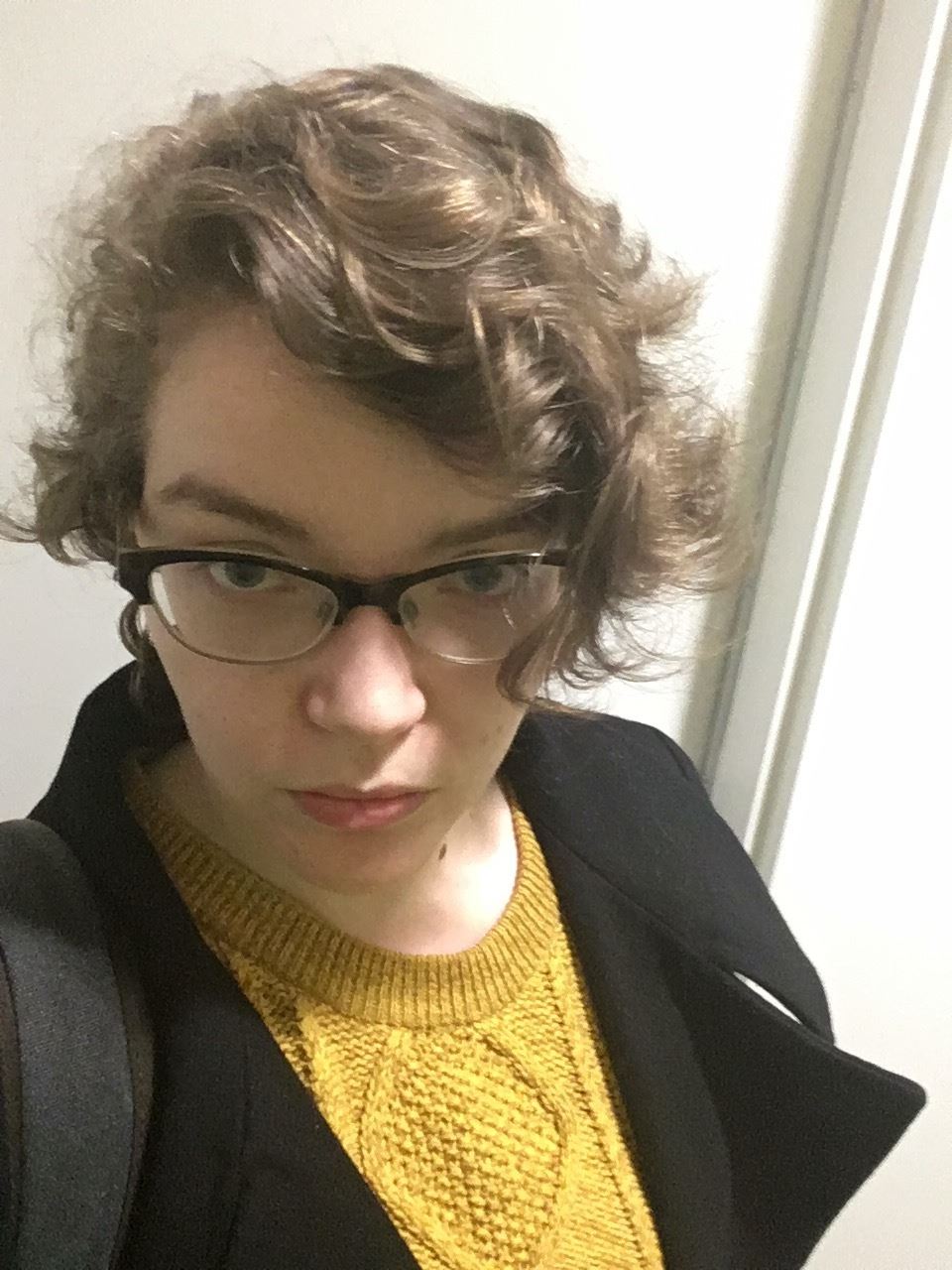
Credit: DNA by Thomas Hawk
Unless you’ve been living under a rock, you’re likely aware that direct-to-consumer (DTC) genetic testing has been enjoying a surge in popularity. Thanks to the relative affordability of DTC genetic tests, and the survival of a few powerful DTC genetic testing companies through the crucible that was the early-2000s market of DTC genetic tests, the rates of those taking such tests to uncover health or ancestral genetic information has continued to rise, resulting in about 15,000,000 people in the AncestryDNA database alone in April 2019. Alongside that rise in test-takers has been a rise in media coverage talking about everything from privacy issues, to the reactions of white nationalists to unexpected results of genetic ancestry tests, to the effect on the modern-day family, to stories of adoptees and missing people who were found through either DTC genetic testing or other genetic tests, and even fertility doctors who used their own sperm to impregnate patients without their knowledge.
Rightfully, such issues have gotten significant ink. Parallel to the media coverage of such world-rocking experience has been the media coverage of collaborations big DTC genetic testing companies have undertaken to increase the number of people purchasing and taking their genetic tests (sensibly so, as they are for-profit companies). These collaborations navigate the choppy waters of genetics, selfhood, and family with varying success, each of which demand attention and strategically placed signposts that respect those waters while providing tools for uncovering fact from fiction from unknown. Below, is a round-up of four collaborations that have received ink and clearly equate genes to culture by emphasizing and effectively sitting in the past to honour it in some way. In an upcoming post, I will share two collaborations that have received less ink and provide a spin on the typical collaborations that call back to the roots of the DTC genetic testing industry itself.

23andMe + Airbnb
Just a couple months ago in May 2019 23andMe and Airbnb announced a collaboration to take advantage of what they assert to be a rise in “heritage travel.” Heritage travel is exactly what it sounds like; traveling to places associated with your heritage. In this collaboration’s case heritage is narrowed down by taking a DTC genetic ancestry test from 23andMe then navigating through their identified ancestral populations to Airbnb Homes and Experiences, or Airbnb’s pages specifically constructed to correspond to the populations 23andMe identifies.
The point, the companies articulate, is to help customers learn more about themselves and their ancestry, and to give them the tools they need to connect to a local culture that is already connected to them through their ancestral roots. This is often the point of the collaborations, to use the equation of genetic ancestry = culture to draw customers in with the claim that they’ll learn about their ancestral cultural roots because they’ve learned their ancestral genetics. Criticisms have been made of this equation, pointing out that genes are not culture and asserting that they are culture, even indirectly, helps prop up the idea of unscientific concepts such as race being scientifically legitimate, even without mentioning the word race. Race is socially relevant and very real in that sense, but biologically real? Not so much. Acting as though such classifications are biologically legitimate is, to put it lightly, worrisome.

23andMe + Fox Sports
Last year during the 2018 FIFA World Cup 23andMe teamed up with Fox Sports, the 2018 FIFA World Cup broadcaster in the United States to start a “Root for Your Roots” campaign that encourages 23andMe customers to return to their results report and reference a new feature that shows countries in the tournament with which they have the strongest genetic connection.
Stepping away from the complex issues inherent in the practice of using current national and territorial boundaries to classify people genetically, this campaign creates a combative attitude based on genes despite assertions that they’re “celebrat[ing] diversity.” It equates genes with a nationality, and in turn a national culture (the advertising video says you don’t have to know the culture or language), then uses that to position customers as allies towards a particular population and thus implies, for the World Cup at least, that they’re opponents to everyone else. It’s benign, until you remember that centuries of discrimination have framed populations different from yourself as opponents in a fight for resources and power, and thus a dangerous precedent is set in a benign manner.

Ancestry + Go Ahead Tours
Before the collaboration of 23andMe and Airbnb was the collaboration between Ancestry and Go Ahead Tours to create Ancestry Tours. Again, these are exactly what they sound like. They’re genealogy tours that are accompanied by an Ancestry Genealogist and include an AncestryDNA kit and a pre-trip family history review. In the vein of earlier genealogy tours, the Ancestry Tours position the genetic ancestry testing as an element of the tour rather than the driving force.
In the same vein as DNA is used by family genealogy enthusiasts, as identified by Alondra Nelson in The Social Life of DNA, DNA is used here as a tool buttressed by genealogy research done using historical records. It is not everything, it is one part of everything. Which, depending on your perspective, may make the common equation of “genetics = culture” less egregious because it’s flanked by the equation of “family history research and records = ancestral culture.”

Ancestry + Spotify
Having received more criticism is the collaboration between AncestryDNA and Spotify to create a Spotify mix drawing inspiration from your genetic origins. Introduced in September 2018, this collaboration does not assert the importance of genealogy and historical records like Ancestry Tours does. Instead, it asserts the importance of genetics as a tool for linking you to a culture—specifically, its music.
It’s a tool of discovery, more than anything else, allowing people to “experience their culture and not just read about it” according to a quote from Vineet Mehra, the executive vice president and chief marketing officer of Ancestry. But, as is the theme here, this discovery comes with a worrisome thread. As Sarah Zhang from The Atlantic neatly summed up when the Ancestry/Spotify collaboration was announced, these collaborations assert a deterministic element to genes and the idea of picking and choosing which genes are important and which are not, making it easy to divide populations and assert superiority over another while ignoring all the facts. Reifying difference and social constructs such as race isn’t the claimed point of companies such as Ancestry, rather the point is self-discovery and a connection with a culture you may not have previously had in practice but nevertheless had in your blood. Unfortunately, you cannot engage in such self-discovery or connection unless you take the test conveniently offered by Ancestry, or 23andMe, or MyHeritage, or any of the other DTC genetic testing companies in the industry.

The author's AncestryDNA results as of July 2019 on a map showing her likely ancestral migration patterns (which match with earlier genealogical research by the author's family) in the dotted lines on the left, and her genetic ancestry as determined by AncestryDNA in the solid lines on the right. Credit: Megan Berry/AncestryDNA.
Stay tuned for my next post, where I will share two collaborations that provide a spin on the typical collaborations of the DTC genetic testing industry itself.
By: Megan Berry

When not working for a Calgary non-profit, Megan N. Berry is playing DnD, watching Let’s Plays, and writing and researching whatever catches her interest (the history of eugenics, 1950’s Tupperware parties, metal music in the 1980’s, etc.). She previously earned her MA in Communication and Culture from Ryerson University and York University after researching how DTC genetic ancestry test-takers reacted to and revealed their results on YouTube videos for audience consumption. She previously earned a Bachelor of Communications from Mount Royal University, writing on sustainability metaphors.
